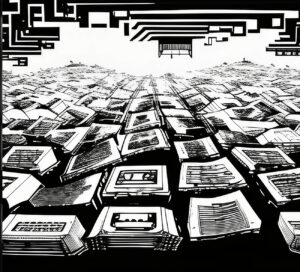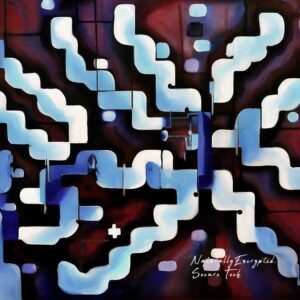A Pivot to NFTs?
When Harold Hughes got in the very first quarter of 2020, he had huge strategies. His audience-analytics business was presenting to extra live-events locations, and he was forecasting $1 million in sales for the year. Then Covid came, and anything associated to live occasions entered into a difficult time out. It was time, he chose, to pivot.
–
Bandwagon Fan Club had actually currently been through one significant pivot given that its launch in 2014 They offered an item to guarantee the ideal tickets entered into the right-hand men on the secondary market, assisting sports groups secure home-team benefit by ensuring fans enjoyed. By the end of 2017, they ‘d discovered constraints to that design in offering strictly to a sports market, and broadened to basic live occasions by utilizing information and analytics to assist locations comprehend the fans who purchased tickets on the secondary market, so that the locations might offer sponsorships targeting their audiences. That live-events tool had actually grown progressively over 3 years: $53,000 in sales 2018, $138,000 in 2019, and in the very first quarter of 2020 alone, $431,000 Then the world-changing occasion occurred, and the company constructed around live occasions all of a sudden could not make cash in the very same method. “With the pandemic, we truly required to determine how to make much better experiences even when individuals aren’t there,” Hughes discussed.
–
It took months prior to Hughes, who had a young child to look after throughout the different Covid shutdowns, came across what would be his business-defining pivot (he and his spouse invited a 2nd kid this August). Hughes stressed that he wasn’t attempting to pretend he might handle both domesticity in the pandemic and rapidly managing a pivot that would be hard under even typical scenarios. Within Bandwagon, “we do not always speak about work-life balance,” Hughes stated, however rather, “we discuss work-life prioritization.” For Hughes, that indicated leaning back from some quantity of active work as he found out his pivot strategy, while he looked after his household in the middle of the pandemic. His minute of motivation came when comparing what he saw of the virtual sports antiques market in the NBA’s Top Shot non-fungible tokens, with an industrial for the NFL’s Green Bay Packers. When he initially took a look at NBA Top Shot last November, he was dissatisfied to see how indistinct the products in it were. Taking a look at a video for sale of a particularly-impressive slam dunk he had actually just recently seen, “When I arrived, I stated wait, there are 10,000 variations of this clip.” The concept of gathering something that was simply one in 10,000 held little appeal for Hughes. Then he remembered a business for the Green Bay Packers that revealed the vantage points of lots of various fans all seeing the very same play in video aggregated from fans who had actually shot it on their phones.
–
” It struck me that each of those perspective, each of those experiences– that was non-fungible. That’s genuinely non-fungible.”
And so Hughes began digging deeper into a cryptocurrency idea that might work for live occasions. In the crypto area, “evidence of” is a regular term, utilized to explain the linkage of the blockchain and its significance: “evidence of stake,” “evidence of work,” and “evidence of funds” are all often utilized to explain the “evidence” that is offered in a public journal. At Bandwagon, Hughes states, “We trademarked the expression, ‘evidence of experience.'” He explains the concept in regards to a typical retort on social networks: “Pics or it didn’t occur.” Today, Hughes asserts, one might tweet, “Oh, I simply saw Tom Hanks in the airport” and a action may be “pictures or it didn’t occur.” For ticketed live occasions, Bandwagon would be assisting occasion manufacturers “lean into utilizing user-generated material, minting them as NFTs, and utilizing them as evidence of their experience.” He envisions his consumers producing numerous videos comparable in nature to that Green Bay Packers promo; they would accredit the fans’ videos and photos taken in the stands, which would be signed up on the blockchain produced by his business for that occasion. The occasion manufacturer can now have access to all the fans’ video footage, while providing proper credit and settlement to the fans. And fans are familiar with and reveal what they belonged of.
–
For fans, the NFTs are extra, virtual experiences that they can have in addition to the live occasions. From the opposite of that exchange, a live-event group might depend on that evidence of experience, and a platform in which they can quickly pay the developer of the video, to produce advertising or other videos with licenses to the user-generated material. This in fact wasn’t the very first time Hughes had actually thought about going this path. “I initially considered this concept of linking fans to their groups in 2016,” he states, broaching a strategy he prepared, and, Doc Brown-like, remembering the precise date: “December 27, 2016.” At the time, however, “I believed to myself, this is too early, so I shelved it,” he states. ” When I had that concept return to me … I took that old illustration and cleaned it off.”
Hughes approached financiers and got them behind the brand-new vision of being a contracted out NFT manufacturer, raising a $1.3 million seed round led by Backstage Capital. The round consisted of angel financiers like the Arizona Cardinals’ Kelvin Beachum, a previous CTO and CPO at Roblox, Keith Lucas, and Eileen Long, a maker discovering leader at YouTube. And then Hughes got to work offering the brand-new vision to clients. “I returned from adult leave the day after Labor Day, and signed Chicago State University prior to completion of September,” Hughes remembered. He would not call his next offers, however stated they consist of “an MLS group, a significant podcaster, and an NFL gamer.”
–
The handle Chicago State University has actually currently produced several NFTs associated with experiences. Elliott Charles, Director of Intercollegiate Athletics, kept in mind that the school had actually “produced some antiques associating with our offering project,” consisting of a graphic of “a spinning token graphic that states some distinct things that we do.” For guests at midnight insanity, “they got a midnight insanity token.” Charles sees the NFT market as a method to “produce things for the households of student-athletes, our student-athletes, and season-ticket holders to provide something to memorialize their experience,” within a minimal advertising products spending plan that prevents much experimentation with physical products. In the future, he likewise hopes it’s a method to get cash in gamers’ hands, offering player-specific antiques, in the middle of the modification in guidelines this year that enables student-athletes to get recommendation funds while keeping their college-athletics eligibility. What lessons is Hughes drawing from his pivot?
–
“I believe the most significant thing for me has actually been not attempting to show individuals incorrect, and more simply discovering individuals who think the exact same things you do, and teaming up with them,”
he states, including that the NFT area has lots of skeptics. ” If I ‘d been stating, ‘Oh, I’m going to show you incorrect,’ I would’ve been stuck in service designs that didn’t work.” It’s a pivot on which he’s gone all-in. The pre-pandemic analytics organization isn’t a focus any longer, and Bandwagon has currently passed 2020 sales with its NFT items in simply the 4th quarter of 2021 For Hughes, the future of his live occasions company is on the blockchain.





